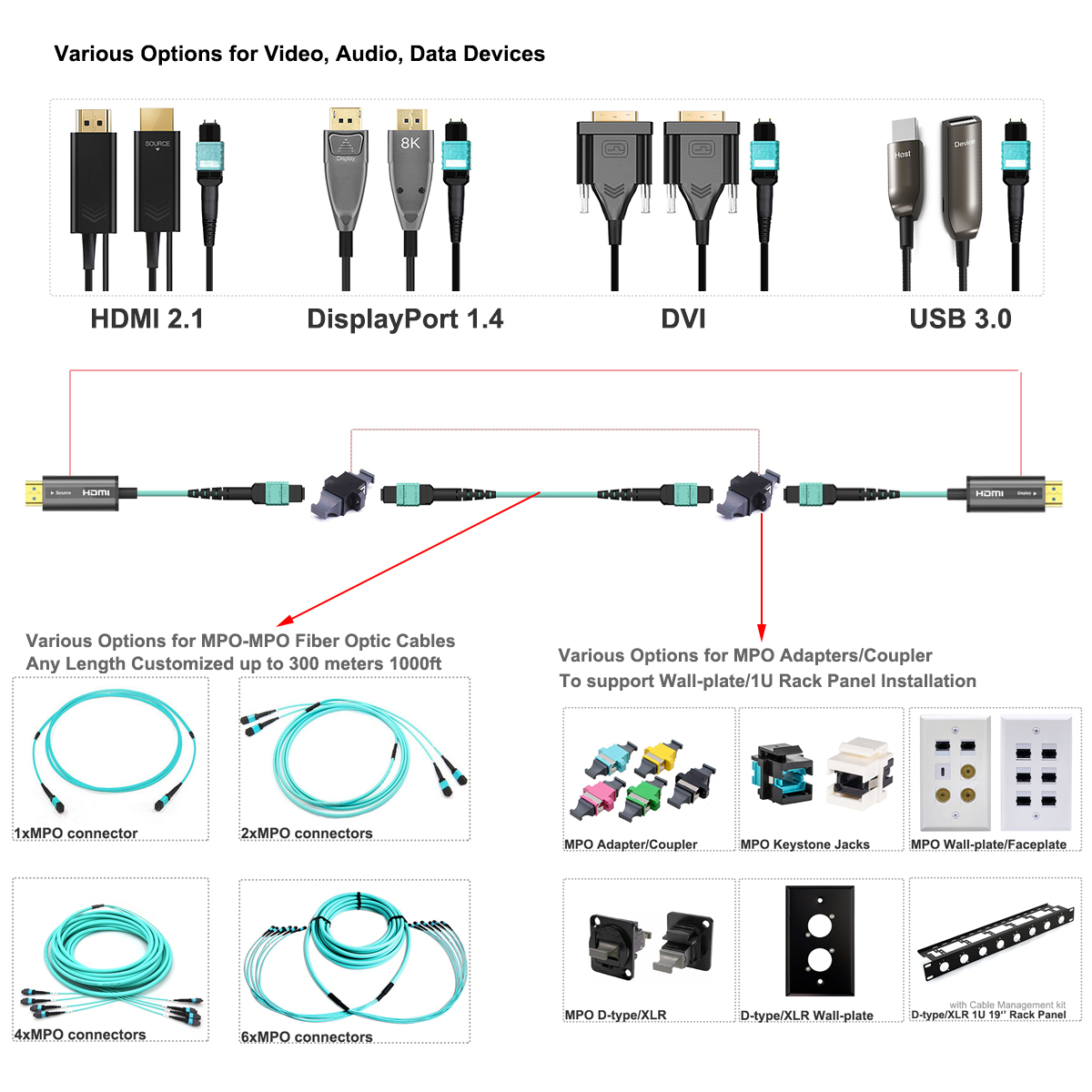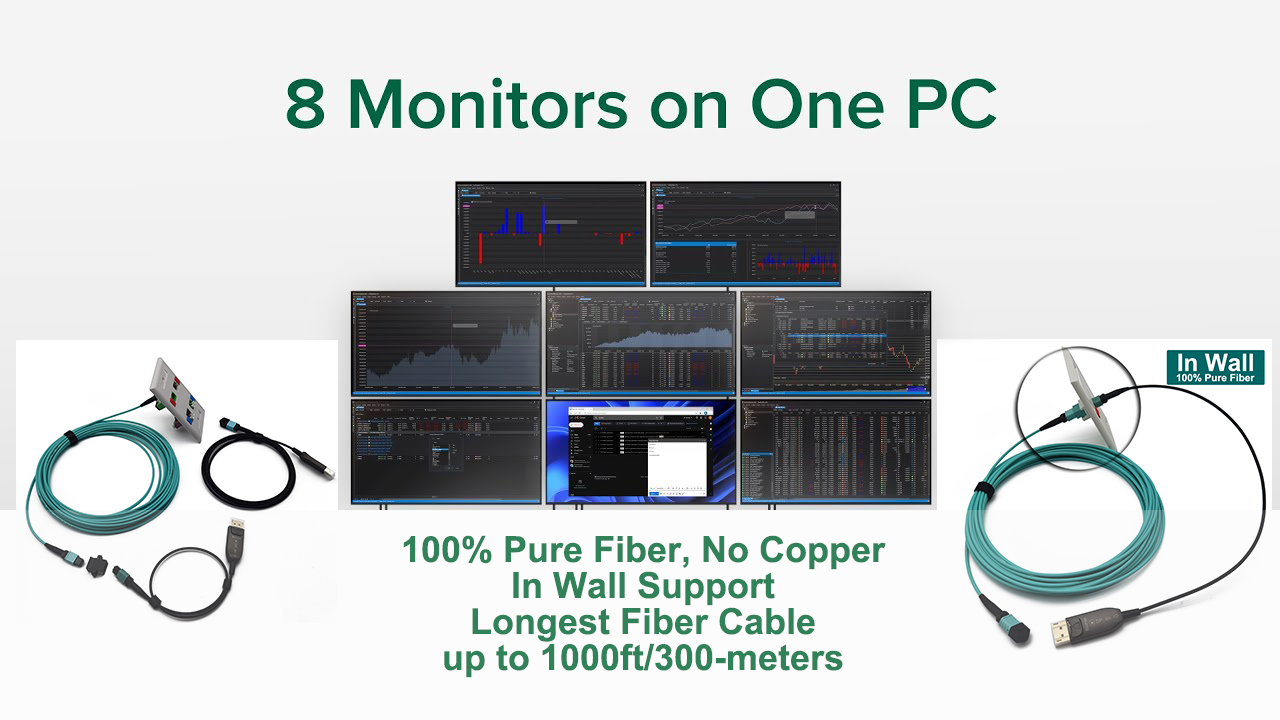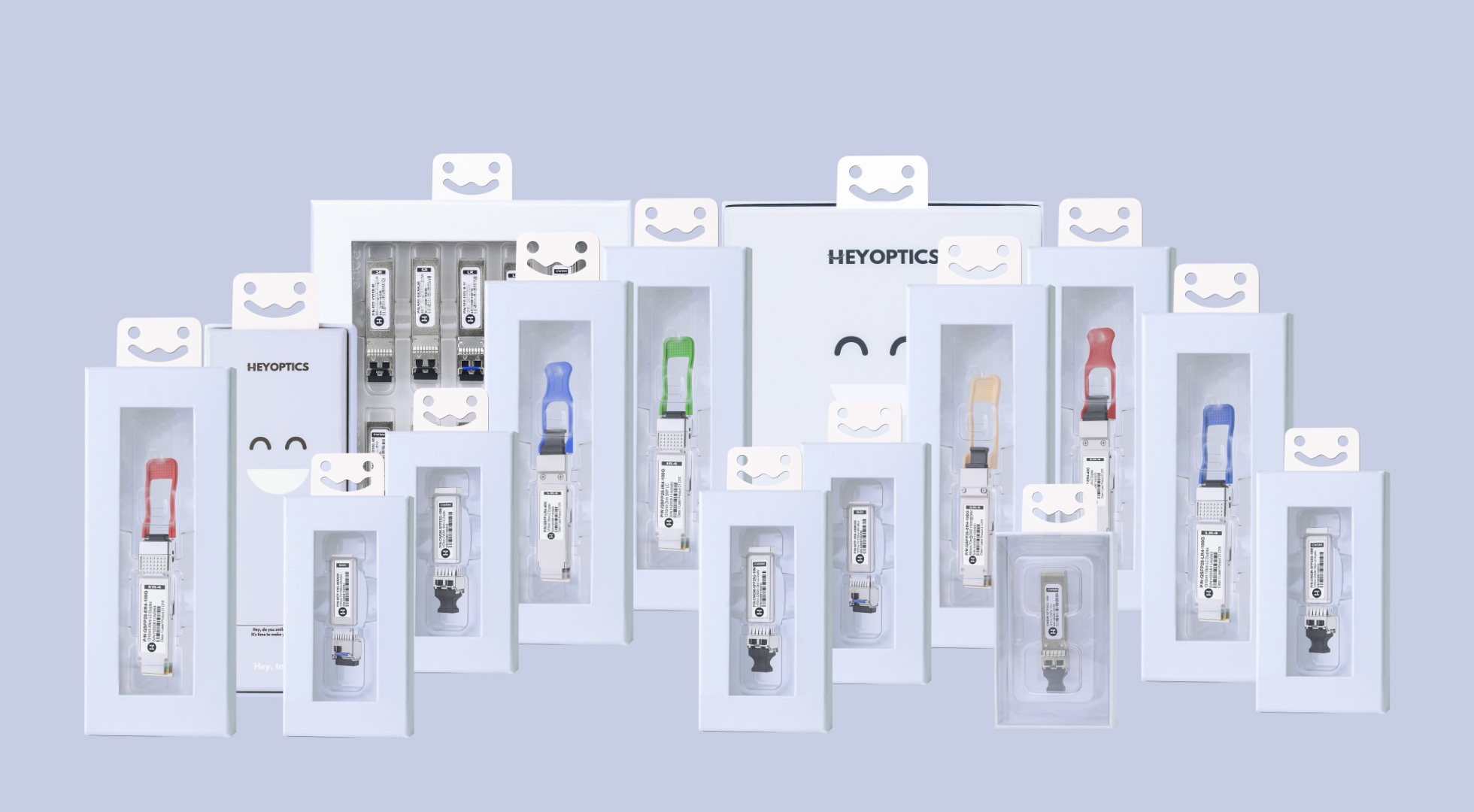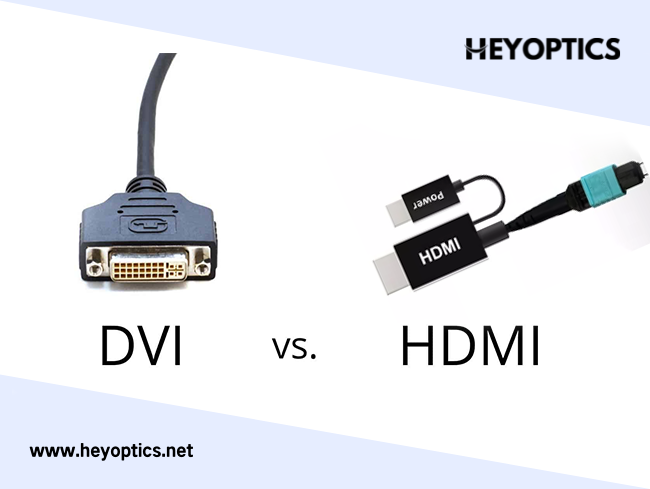Does the HDMI cable carry both audio and video?
Keeping up with what cables you need for all of your devices can seem like traipsing through a thick jungle of plastic-coated vines, but you may well have heard of one cable that stands out from the tangle – the HDMI cable.
Does HDMI carry audio? Generally, the answer is yes. HDMI is a kind of interface used widely on computers and TVs to transmit audio and video data. However, some people find the HDMI sound not working while connecting computer to TV, monitor, or another device.
HDMI Cables Both Audio & Visual:
HDMI stands for High Definition Multimedia Interface and the cables have the ability to transmit both video and audio. Uncompressed video signals are sent through the cable. Uncompressed and compressed audio is sent through this cable. HMDI cables are plugged into HDMI ports and can then receive and transfer the audio signals.
HDMI cable allows users to connect their TVs or home cinemas to source devices for high-definition multimedia entertainment.
Can All HDMI Cables Carry Audio?
When we plug in our HDMI cable we’re expecting it to carry an audio signal to our TV.
Let’s face it, our favorite show or game wouldn’t be complete without sound. Audio matters tremendously and so it stands to reason that an HDMI cable should transmit audio.
Thankfully, all HDMI cables have the ability to ensure your media will be accompanied by all the sounds you’d expect. What this means is that an HDMI cable will be able to transmit any audio file out there and have it blaring out of your TV or home cinema.
If you’re experiencing sound issues it is unlikely to do with your HDMI cable.
Your HDMI Is Plugged Into Your TV, But You Have No Sound
So your HDMI cable is plugged into your TV and yet there’s not a sound to be heard.
As frustrating as this is, it’s unlikely to be the cable at fault. Take a look at our troubleshooting guide for TVs and HDMI cables to fix your audio issues. First and foremost, you can always try plugging your HMDI cable into a different TV to test whether or not it is the TV that’s at fault.
Do HDMI Cables Deliver High-Quality Sound?
With all the talk about high-definition and superior picture quality, it’s easy to forget about sound quality, but we’re here to tell you that those HDMI cables will ensure that you get the sound you deserve.
Now, HDMI cables cannot improve the sound quality on their own, but they do support the best of what’s on offer:
- HDMI cables can deliver DTS HD
- HDMI cables can deliver Dolby True HD
- They support Stereo 3D and Surround Sound
- HMDI cables can ensure that you experience the optimal sound quality that your equipment can produce (allowing for 7.1 surround sound via a total of eight channels).
- Audio and visuals should stay perfectly in sync.
- Remember, older cables, such as HDMI 1.0 will not allow you to get the best out of your high-end devices.
Do HDMI Cables Make A Difference In Picture Quality?
HDMI cables have different capabilities when it comes to supporting video resolution, so yes, your picture quality could be different depending on which one you use with what source device.
There are four main types of HDMI cables:
- Standard HDMI cables
- High-Speed HDMI cables
- Premium High-Speed HDMI cables
- Ultra High-Speed HDMI cables
For the best picture quality, you should choose an Ultra High-Speed HDMI cable. However, it's worth noting that you can't simply improve the picture quality by using a more advanced cable, your device still has to support that quality.
For example, if your TV only supports 4K, you cannot use an Ultra High-Speed HDMI cable for 8K quality. Click to view-8k fiber optic HDMI cable.
All in all, the quality of the picture displayed will be as good as the connected device can support it.
Do HDMI Cables Make A Difference In Sound Quality?
HDMI cables are known for their superior video quality transmissions, but they also allow for the transmission of audio data in the same cable.
Similarly to picture quality, the more advanced the HDMI cable is, the sharper and more in-sync the audio quality will be. Since the invention of HDMI 2.0 and 2.1, we are now able to transmit not just 8 audio channels, but up to 32 channels.
If you are using an HDMI cable that offers fewer capabilities than the device you have connected to it, you will receive a lower audio quality than is achievable. That is why it’s imperative to note what audio quality your device is capable of so you can pair it with the most appropriate HDMI cable; ensuring you achieve the highest quality audio possible.
How Do You Know If Your HDMI Is Broken?
Like many things, as brilliant as HDMI cables are, they are also susceptible to breakages either by accident or with improper use. HDMI cables do not last forever and are prone to wear and tear.
Here are the most obvious indicators to watch out for when assessing whether your HDMI cable is functioning correctly:
- No visible picture
- No sound
- Intermittent audio or picture quality
- Out-of-focus visuals
- Crackling in the audio
- Abnormal colors
If you begin to notice any of these symptoms then it could be a sign of a broken HDMI cable, and therefore it is best that you replace it as soon as possible.
Here are 3 tips and tricks to help improve the longevity of your HDMI cable:
- Always ensure you carefully remove the HDMI cable from its port on your device.
A cable that is handled forcefully is more susceptible to damage and can create a loose connector.
- Never bend your HDMI cable too far.
Although the cable casing is flexible, over time this can cause the outer plastic to crack or tear, exposing the wire beneath.
- Make sure you store your HDMI cable safely so it is not exposed to unnecessary wear and tear.
Do You Need Special HDMI Cables For High-Resolution Video?
There have been many advances in the types of HDMI cables over the years to cope with the ever-increasing enhancements of video resolution.
Unfortunately, standard HDMI cables will not be able to support HD resolution video; you will need to use a certain type of cable designed for this purpose.
A standard HDMI cable only supports up to 720p and 1080i.
Below are the types of HDMI cables you will need to purchase in order to successfully support an HD video resolution of 1080p upwards.
Ultra High-Speed HDMI Cable
Fiber HDMI 2.1 cable with impressive capabilities. They support both uncompressed 8K resolution at 60Hz and 4K at a whopping 120Hz.
- It has the highest bandwidth of up to 48Gbps. 8K HDMI MPO Fiber optic cable provides the highest speed and bandwidth needed for the best video and/ or audio quality for high definition at lengths up to 303 meters (1000ft). Which supports the long distances required in commercial video solutions.
- Not only is this cable compatible with earlier versions of HDMI as well as supporting HDMI 2.1a, but it also has impressive new abilities such as Enhanced Audio Return Channels and Variable Refresh Rates.





